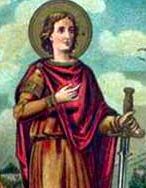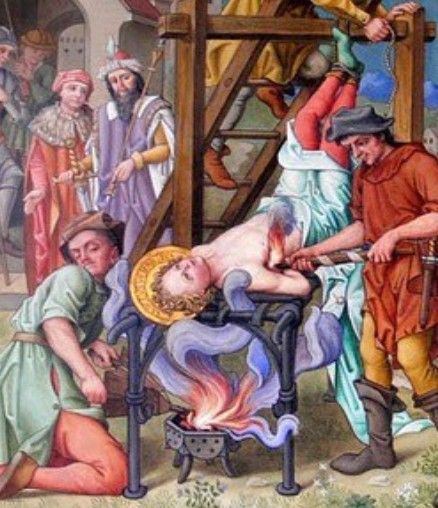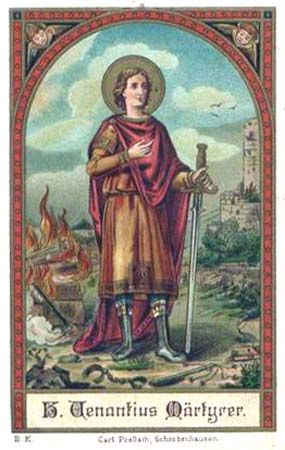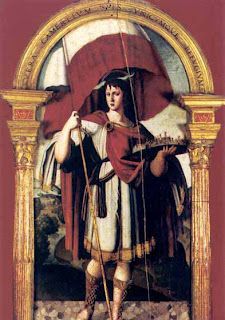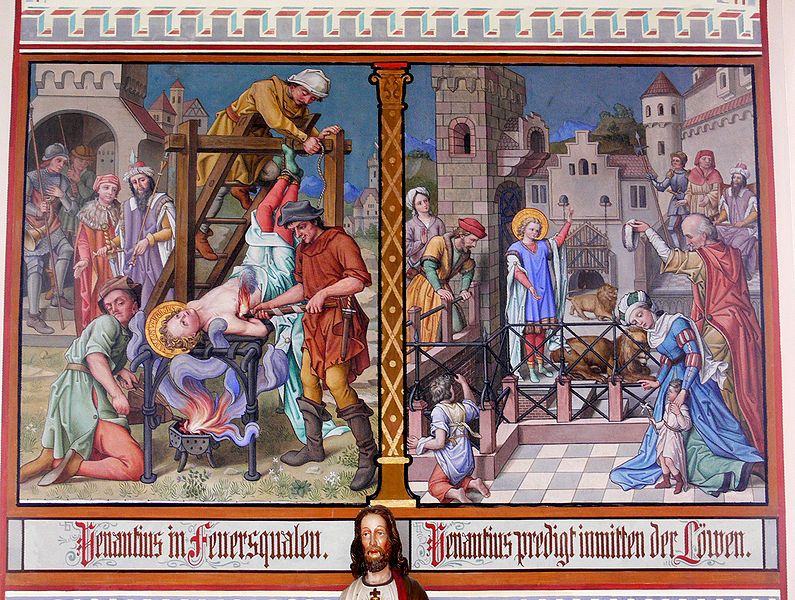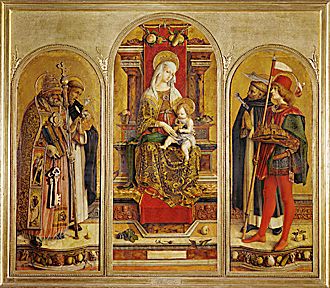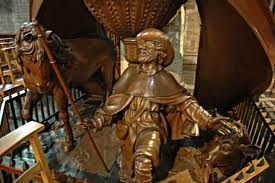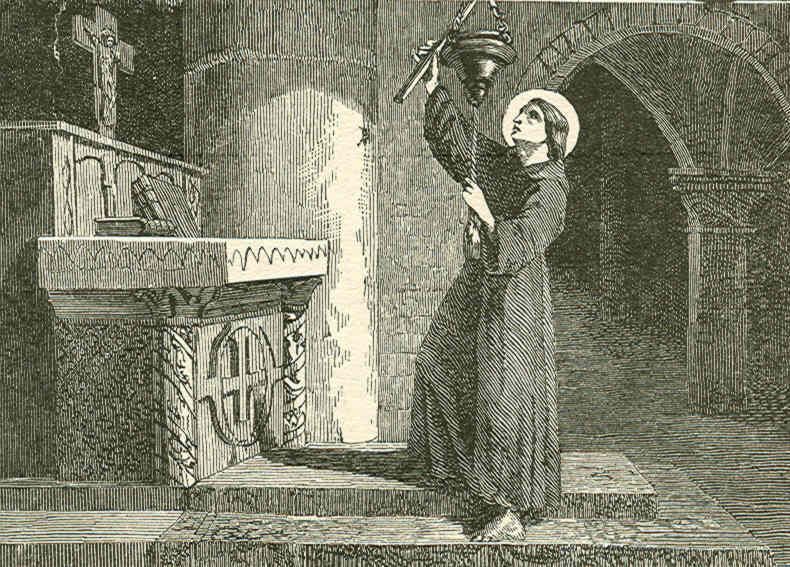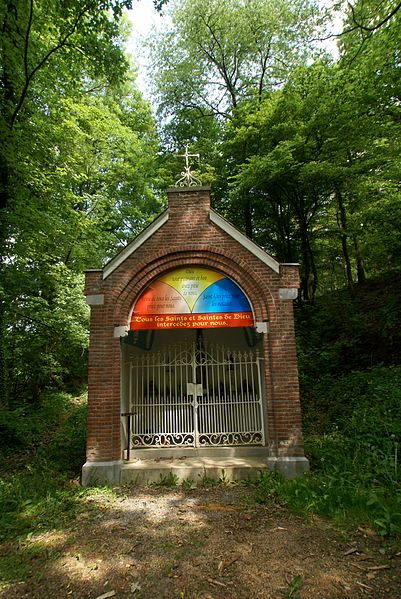O God, who hast
hallowed this day by the triumph of Thy blessed Martyr Venantius: graciously
hear the prayers of Thy people and grant that we who venerate his merits, may
also imitate the constancy of his faith. Through Christ, Our Lord. Amen.
Today, May
18, we celebrate the feast of Saint Venantius of Camerino (235-250), a teenage
martyr for the faith. Even as a boy of
fifteen, Saint Venantius preached and lived the word of God. His suffering was only exceeded by his Love
for the Lord, earning him the golden martyr’s crown.
Venantius
was born at Camerino in Italy, during the persecution of Christians by the
Roman Emperor Decius. Venantius was to
be taken into custody at the age of fifteen, having been caught preaching the
Gospel of Christ to all who would listen. The events of his martyrdom are
nothing short of miraculous, and continue to inspire us today.
Having
learned that he was about to be arrested, Venantius instead presented himself
to the governor of Camerino, Antiochus.
There, outside the city gates, Venantius preached the Gospel to the
governor, comparing the sinful Roman gods to the one, true Lord, Jesus
Christ. The governor, irate, made every
effort to get this confident boy to recant his preaching and sacrifice to the
gods. However, Venantius stood firm in
his conviction, withstanding horrible threats and generous promises of wealth
and power. Out of options, the governor
ordered him arrested and scourged, but every stroke of the whip was miraculously
blocked by an angel who appeared from heaven.
Antiochus
then ordered Venantius to be burnt with torches and suspended over a low fire
that he might be suffocated by the smoke. Again, an angel, as reported by the
judge’s secretary, saved the young saint.
While admiring the steadfastness of the boy, he observed an angel robed
in white, who stamped out the fire and again set free the youthful martyr. This
man proclaimed his faith in Christ immediately and was baptized with his whole
family. Shortly afterwards he was martyred for his beliefs.
Venantius
was then summoned again to appear before Antiochus. Unable to make him renounce
his faith, the governor cast him into prison, but he held firm to his beliefs.
It was then ordered that his teeth and jaws to be broken, and that he be thrown
into a furnace to burn to death. Again, an angel of the Lord rescued him.
The
governor was at a loss of what to do next, given that every attempt to harm the
youth had failed. He sent him to the
city magistrate to be condemned to death, but Venantius converted the
magistrate, eloquently proclaiming the Gospel.
It is said that the judge, upon hearing his testimony, fell from his
seat and died, saying, “The God of Venantius is the true God; let us destroy
our idols.”
Having
returned to Antiochus, Venantius was ordered to be sacrificed to the
lions. However, the beasts failed to
attack, instead reclining docilely by his feet as common pets. Venantius was then dragged through a heap of
brambles and thorns, until he was bruised and broken, and near death. Being a hot day, the soldiers who dragged
him outside the city over stones and rocks to inflict his wounds, were
suffering from thirst and heat exhaustion, and complained of their
ailments. Despite his suffering,
Venantius knelt on a rock, made the sign of the cross, and immediately a stream
of cool water welled up on the spot.
The soldiers drank, many of them converted. The rock itself remained imprinted by his knees and was placed in
the Basilica in Camerino, where it still remains.
Returned to
his cell, near death, the governor was convinced he had achieved his
goals. However, the following morning,
Venantius was found unscathed and healthy, miraculously cured of all his
wounds. Along with many of the soldiers
who had been converted, Venantius was beheaded that morning. Christians in the
community gave an honorable burial to the bodies of these martyrs, who now rest
in Camerino, in the church dedicated to Saint Venantius. The spring, which had miraculously been
produced, has been recorded to have healing powers.
The brief life of Saint Venantius is one of love, praise of
the Lord, suffering, and eventual martyrdom.
Throughout, Venantius never wavered from his convictions, holding true
to the truth of the Gospel. He was
willing to patiently suffer, awaiting the glory of his reunification with the
Risen Lord.
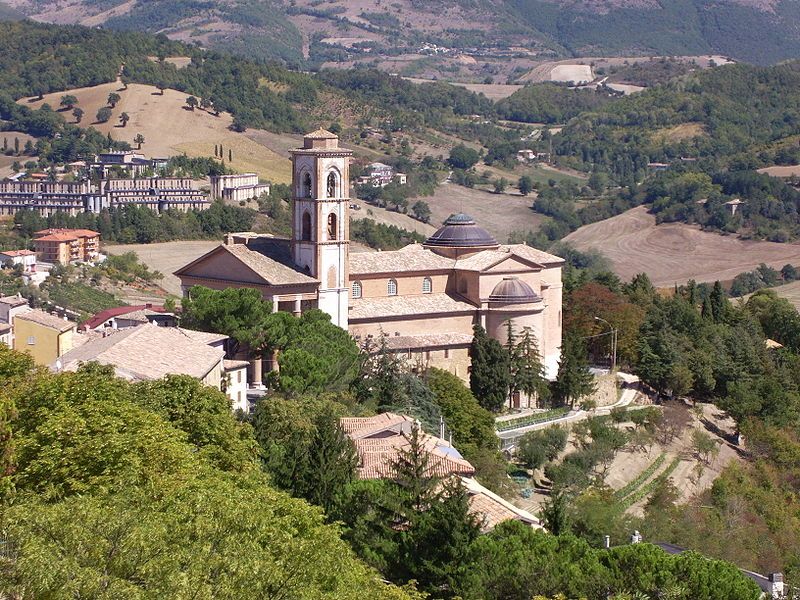 |
| Church of Saint Venantius |
Saint Venantius, whom reflected the love of
suffering marks; the most perfect degree in the love of our God. Our Lord
Himself was consumed with the desire to suffer, because He burnt with the love
of God. Pray for us to begin with patience and detachment. So we may at last
shall learn to love the sufferings which conform us to the Passion of our
Redeemer. Amen







